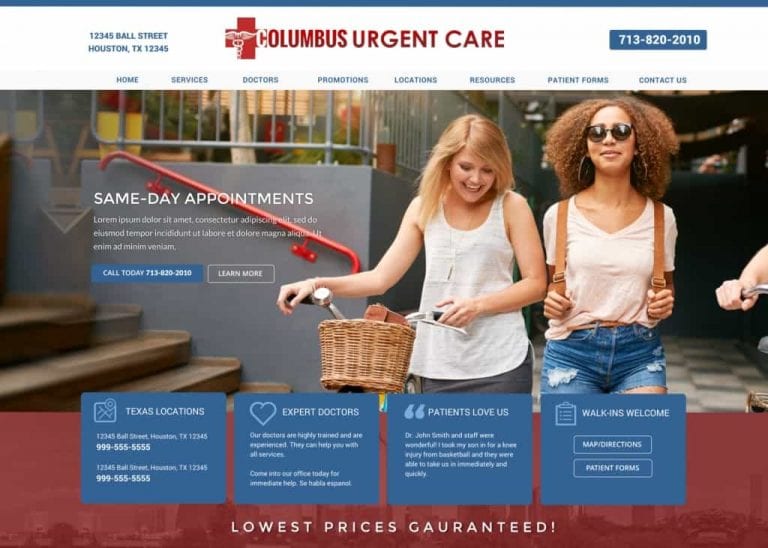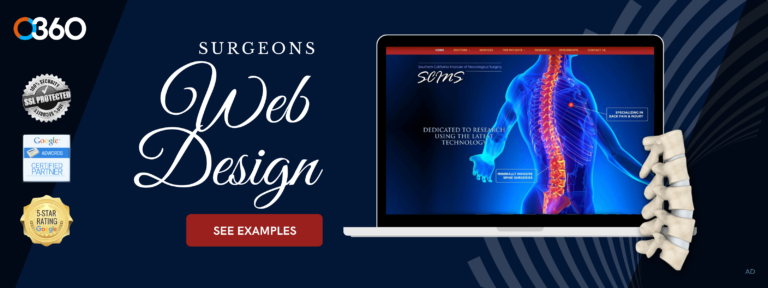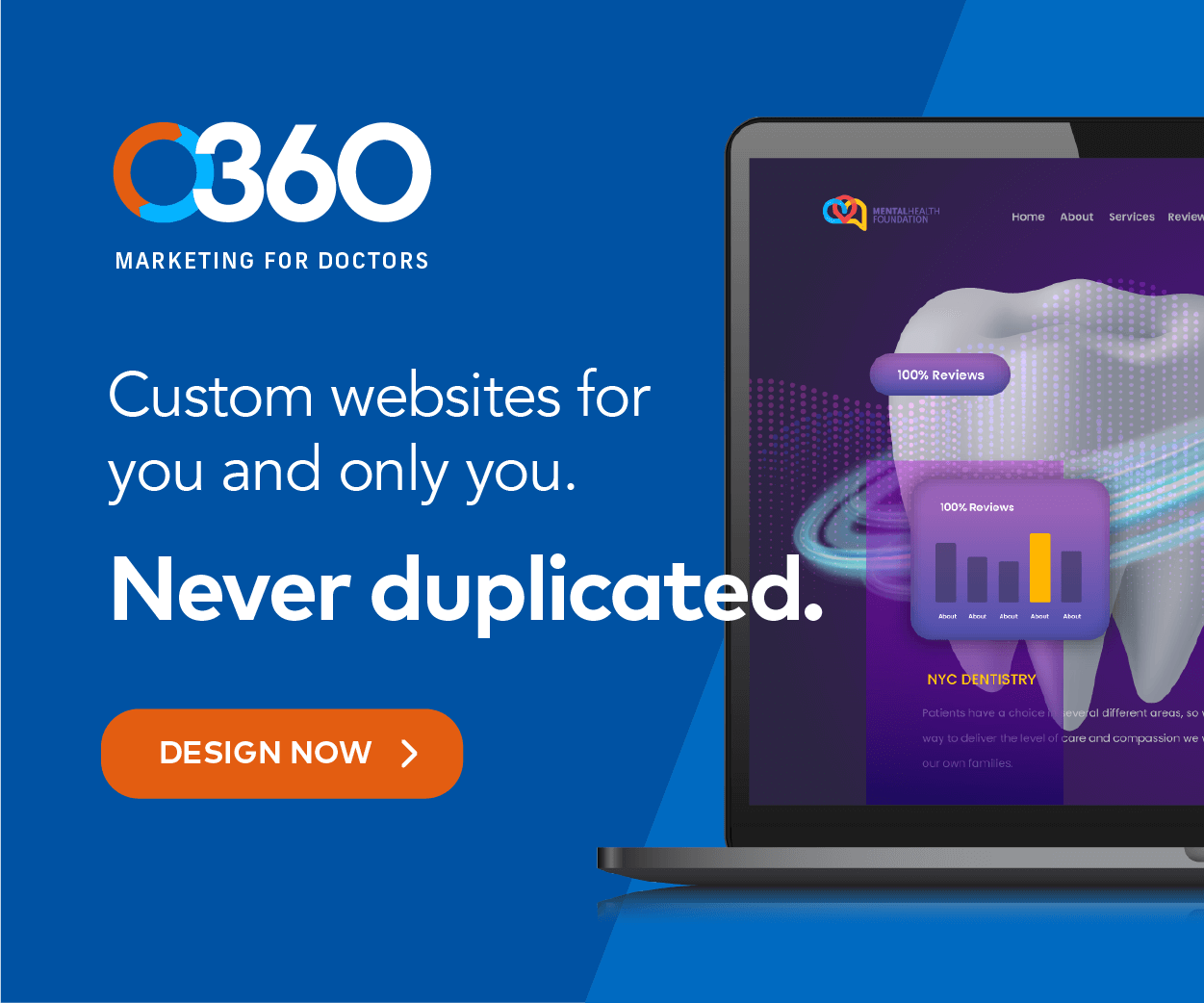
Healthcare providers are uniquely positioned to provide authoritative advice and information about various medical topics through blogging. They have the training and experience to eliminate myths and misconceptions about medical treatments and conditions. The website for their practice, clinic, or network provides a great platform for doing so, and it can be even more effective with a well-positioned blog. This article introduces how blogging can enhance your website and improve patient engagement.
The Case for Blogging in Healthcare
With healthcare communications’ ongoing evolution, one challenge that providers continue to face is communicating with their patient base. Patients’ communication changes rapidly as new trends and platforms are developed, trending, and ultimately fading into obscurity. While they still have their place, traditional advertising methods in print, on television, and on billboards face serious limitations in the modern digital age. These methods must be more effective in engaging patients in meaningful ways and are limited in their ability to provide the depth of information they often seek.
Blogging is a prominent way to establish your clinic’s identity, engage with patients, and facilitate communication. This platform provides dynamic opportunities for providers to answer common questions, discuss current health trends, showcase their expertise, and build and maintain trust with their audience. Blogs provide the opportunity to bring valuable information to your patients, including:
- In-depth discussion of health issues, symptoms, and signs
- Step-by-step explanations of treatments, how to prepare, and the recovery process.
- The importance of preventative care
- Explanations of medical jargon to aid in patient understanding
- Discussion of current trends and debunking of medical misinformation
Including medical disclaimers in your content is essential when providing medical information when blogging. While the information on your blog should be accurate and valuable, medical topics are complex, and patients should be reminded that a professional should oversee their care. Further, all information discussed in your blog should be patient agnostic, free of any information that would violate patient privacy or HIPAA regulations.
Blogging Strategies for Success
Effective blogging requires implementing certain strategies and understanding how your patients engage. It all starts with speaking to your patients on their level and using simple language to describe seemingly complex medical topics. The organization and presentation of the information are important for ensuring it is easily read and eye-catching. Important components of proper formatting in a blog include:
- Bullet points help organize information into digestible bites.
- Subheadings guide the reader through complex topics by breaking them into sub-topics
- Short paragraphs help prevent oversaturation and improve the appearance of the article.
These three components help encourage engagement by making the content more approachable. This also builds trust and authority in your site, encouraging patients to return when they need care or information about their treatment.
While these guidelines will help ensure that your patients engage with your content, it must first reach them. This is where SEO practices, or Search Engine Optimization, come in. Your content must include strategies that will appeal to your desired audience. This means that keywords must be included and applied that draw those in the city or region where your practice does business. By making your clinic easier to find online, you establish yourself as an integral part of the local health community.
As mentioned, healthcare blogging comes with its share of responsibilities on the provider’s part. Your content must include the necessary disclaimers, adhere to the patient privacy laws, and respect HIPAA regulations. These steps will build your audience’s trust and aid in building and sustaining trust that the information provided is reliable and that their privacy will be respected.
Blog Content Ideas

An engaging medical blog is about more than just sharing medical facts with your readers; it aims to promote a community of engaged readers who trust you for their medical needs and interests. Below are some examples of the kinds of blog topics that are of interest to your medical patients.
- National Health Observances: Every month, one or more health observances raise awareness about different medical conditions and topics. You can use these as the foundation of the educational content you provided during that period to help educate your readers about the issue, ways to prevent it, and wellness tips. For example, Heart Health Month is a great way to introduce concepts covering heart disease prevention, healthy heart tips, and symptoms of heart-related conditions.
- Common Questions and Myths: Social media has become a great platform for spreading misinformation about various topics. Healthcare topics are no exception and can potentially be dangerous to readers who take them as fact. Medical providers can help combat this misinformation by addressing the common myths with accurate information. Fad treatments for health conditions and clearing up myths around vaccinations are two prominent examples of these topics.
- Patient Stories: Patient stories can be a great way to provide real-life examples of the treatment experience for various health conditions. While the content must be anonymized so no identifying information can be found about the patient being discussed, it can help patients prepare for their treatment experience.
- Health Tips and How-tos: When patients experience health concerns, they often look for quick, actionable advice. Practice health tips, healthy lifestyle advice, and how-to guides are all examples of content medical readers seek out. When filled with good advice and helpful tips, they can reassure and encourage your patients, helping them make positive health choices.
- Latest Research and News Commentary: Medical technology is constantly developing, with new findings, treatments, and medical conditions being found in health news sources. Providing your insight and commentary on these topics provides a trusted, reliable source of information for your patients. It also helps ensure your content is fresh, which keeps readers engaged, helps your SEO ranking, and provides an opportunity to combat misinformation.
- Interviews with Experts: Professional advice and information are always immensely valuable to readers. Interviews with staff members or colleagues in your network deliver trusted insight on the latest healthcare trends, helping your readers better understand health and wellness issues.
These are just a few examples of what you can incorporate into your blog. With content like this and the help of a professional writing and web design team, your platform will deliver rich, informative content that engages your readers.
Tips for Effective Blogging
Now that we’ve discussed blog structure and introduced topics that can help you reach your target audience, it’s time for some final tips on creating content that resonates with your readers. It starts with content that shares personal experiences and challenges in the medical field that will help humanize your content. By reflecting on your expertise and values as a medical provider, you can foster a sense of trust and authority.
Incorporate Multimedia Elements
- Vlogs, also known as video blogs, can help you engage more directly and dynamically with your audience.
- Infographics, particularly those with interactive elements, can help engage patients who receive information differently.
- Quizzes and live Q&A sessions can reinforce the information by encouraging active participation. This can make learning about health concerns both more enjoyable and more informative.
Enhance Engagement and Information Retention
- Using visual and auditory elements can help present static information in a way that is both memorable and engaging.
- Diversifying the type and format of your content also aids in engagement and retention.
- Multimedia elements like audio files, music, and video drive your blog’s accessibility and appeal.
These elements will elevate your clinic’s blog from an information source to an engaging and interactive platform that connects with your audience while reflecting your commitment as a physician.
Enhance Your Website With A Medical Blog
Medical blogging is an important step in creating an effective, informative website to draw in patients by building their trust and reliance on you for medical care. Properly leveraged, it will connect you with your local community and help establish your clinic as a trusted authority in the medical community. However, blogging can be a complex and time-consuming process that risks taking important time away from patient care and running your clinic. Thankfully, there are professional content writers and web developers who can help facilitate the development and maintenance of your blog with minimal oversight from your team.














